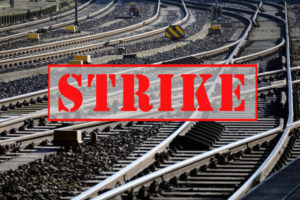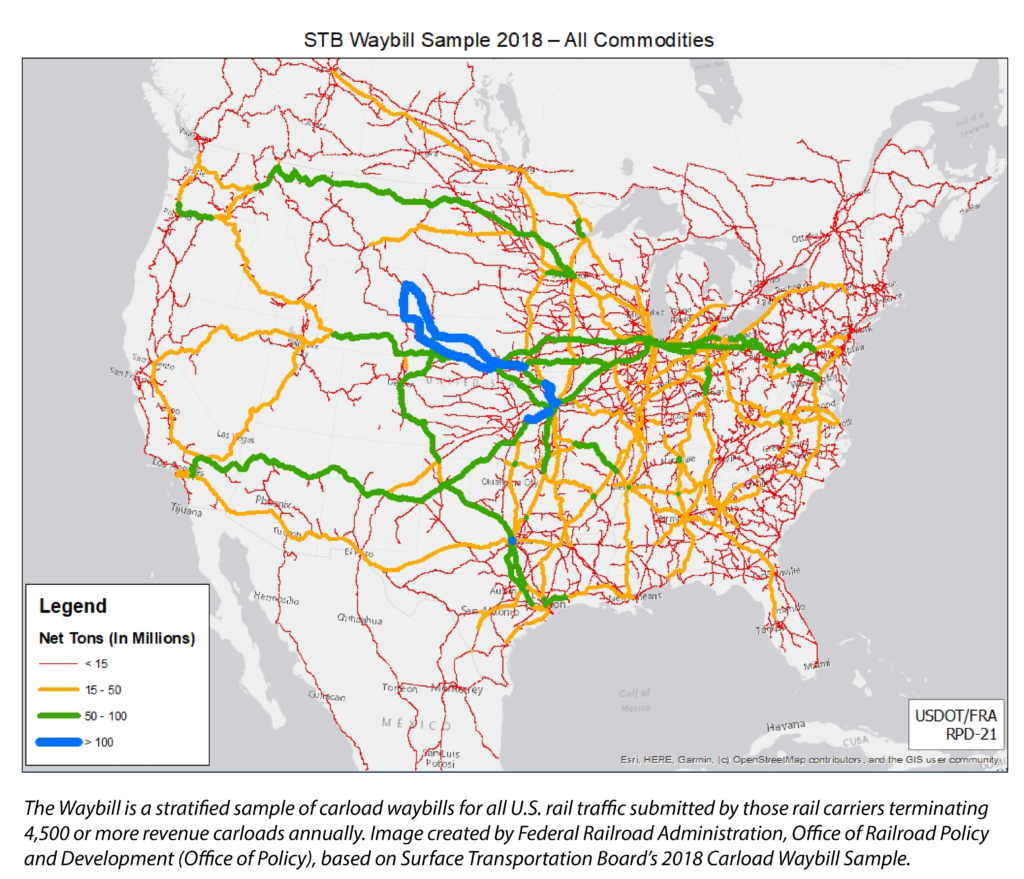Since the outbreak of the Covid-19 pandemic, Americans have been inundated with stories about the country’s broken supply chain. Shortages and rising costs for shipping have been an everyday problem for business owners and their customers. Now, railroad employees are preparing to strike for higher wages, and if railroads and their unions can’t come to an agreement, the entire supply chain could be upended once again.
Freight railroads said they are planning to halt the transport of hazardous materials and sensitive cargoes, such as chemicals used in fertilizer and chlorine for water purification, as they continue negotiations with two labor unions.
Railroads have informed customers that they may stop accepting certain types of freight, including bulk shipments, beginning Monday to avoid materials being unattended or unsecured in case of a work stoppage. Rail customers such as agricultural companies are evaluating contingency plans, including shutting down processing plants amid rail delays, or hiring alternative transportation providers such as trucking companies.
The ripple effects of the railroads’ plans are extending beyond freight traffic. Amtrak said it would begin reducing some passenger services Tuesday by canceling trips over three long-distance routes.
The freight railroads have already reached new labor deals or are completing tentative agreements with 10 unions, and are in continuing talks with two groups representing about 66,000 workers. The two remaining unions, the Brotherhood of Locomotive Engineers and Trainmen, and SMART-Transportation Division, said Sunday that the railroads’ plans to restrict cargo is a move to “extort a contract settlement” and that they remain at the bargaining table.
A White House-appointed panel has already interceded with recommendations for a deal ahead of a Friday deadline for an agreement.
If those negotiations remain at a stalemate, workers for two unions representing rail engineers and other employees could decide to stop work. Both groups voted to authorize a strike if a deal isn’t reached.
American rail networks criss-cross the country, normally carrying freight at prices much lower than trucking. You can see the reach of the network on the map below. Meanwhile, the WSJ reports “The average rate per mile across the U.S. in the truckload van spot market so far in September [is $2.47], down 21 cents since June to what would be the lowest monthly rate since February 2021, according to DAT Solutions.” Expect busier roads.
Action Line: Don’t put your family at risk of suffering from supply chain shocks, prepare food and water ahead. Start by downloading my special reports FOOD SHORTAGE: Crazed Hoarding Is not Preparing and Emergency Water Storage: How Much, Containers, Purification & More.
Originally posted on Your Survival Guy.


